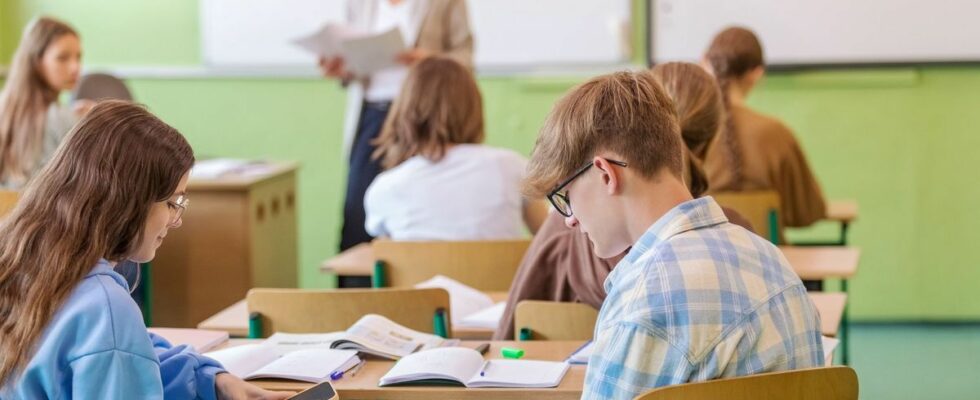Published on
updated on
Reading 2 min.
The Minister of National Education, Nicole Belloubet, wants to introduce a “digital break” in several middle schools as of this new school year. The idea is to force students not to use their smartphones during all their hours of presence within the establishment. To achieve this, different solutions could be proposed.
This experiment is in fact a reminder of the law, since since 2018, the use of mobile phones has been prohibited in schools. Indeed, the law of August 3, 2018 relating to the supervision of the use of mobile phones in educational establishments provides that “The use of a mobile phone or any other electronic communications terminal equipment by a student is prohibited in nursery schools, elementary schools and middle schools“. Except in certain circumstances, particularly educational uses, smartphones are therefore strictly prohibited in class. In theory at least, because in practice it is much more complicated.
“It is absolutely essential that the prohibition provided for by law be respected“, declared Nicole Belloubet on X (former Twitter). And for this, an experiment will take place in several colleges in France, at least one per department. Colleges will be able to volunteer to participate in this experimental program, knowing that establishments located in priority areas (REP and REP+) will be more solicited.
📲 The consequences of using cell phones in middle school can be dramatic.
The prohibition provided for by law must absolutely be respected!
As soon as the school year starts, I am launching an experiment with a digital break in one college per department. pic.twitter.com/jjRAyyBOM6
— Nicole Belloubet (@NBelloubet) May 31, 2024
As part of the experiment, smartphones will be banned not only in class but also during recess and lunch breaks. The measure is intended to help students concentrate better, but also improve their well-being by limiting entertainment and cheating in class as well as harassment and violence within the school grounds.
It remains to be seen how to apply this measure. A first example in Réunion (back to school on August 19) where a college in Saint-Paul has set up a system where students leave their smartphones in a dedicated pocket at the entrance to the school and only pick them up when they leave. Other solutions are possible, at the discretion of school principals, depending on their infrastructure and resources. The simplest, however, is to install secure cabinets that can hold small objects such as mobile phones, even if this comes at a significant cost (several thousand euros, which varies depending on the number of students). This is the price to pay to ensure the security of students’ devices during this disconnection period.
Depending on the reception and the results obtained, this “digital break” could be extended in the future to other establishments, or even to all the colleges in the country. Today, almost everywhere in the world, the trend is towards disconnection in schools, with some countries such as Australia or New Zealand even advocating zero tolerance.
